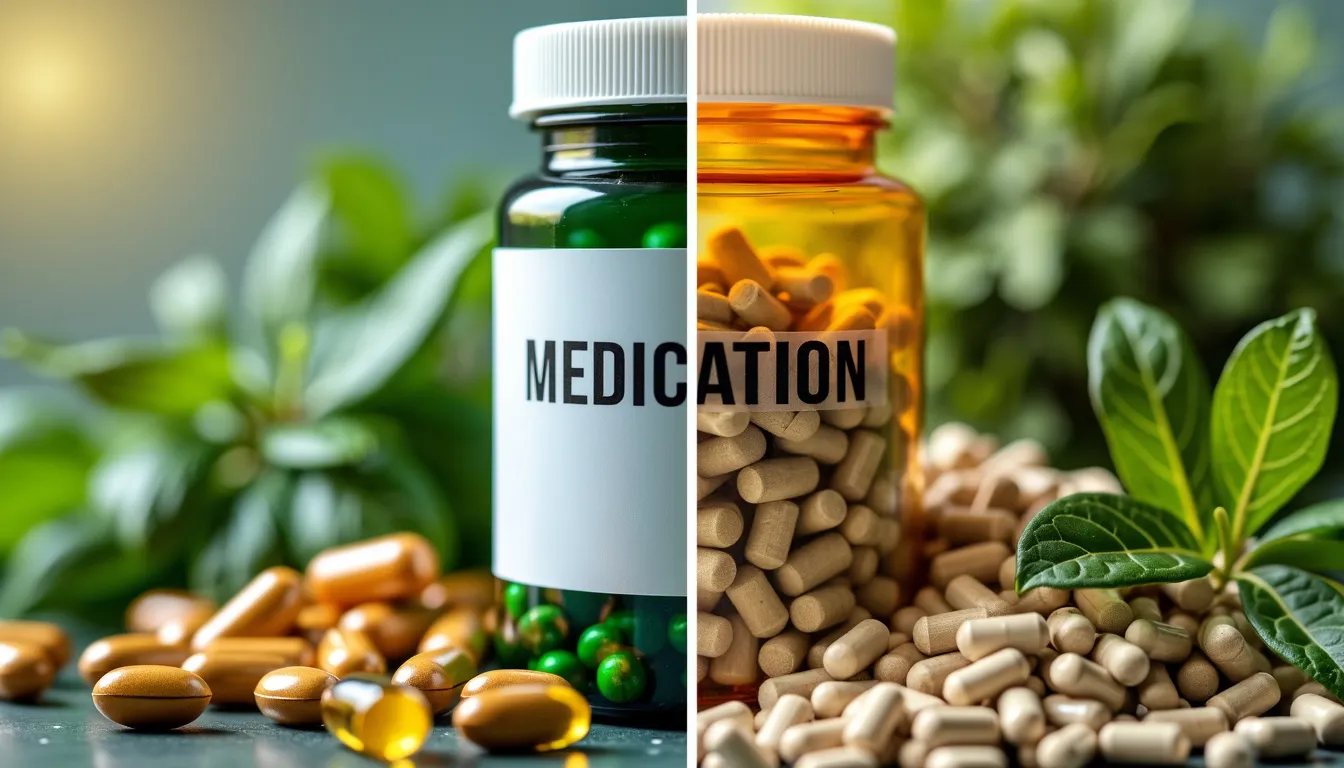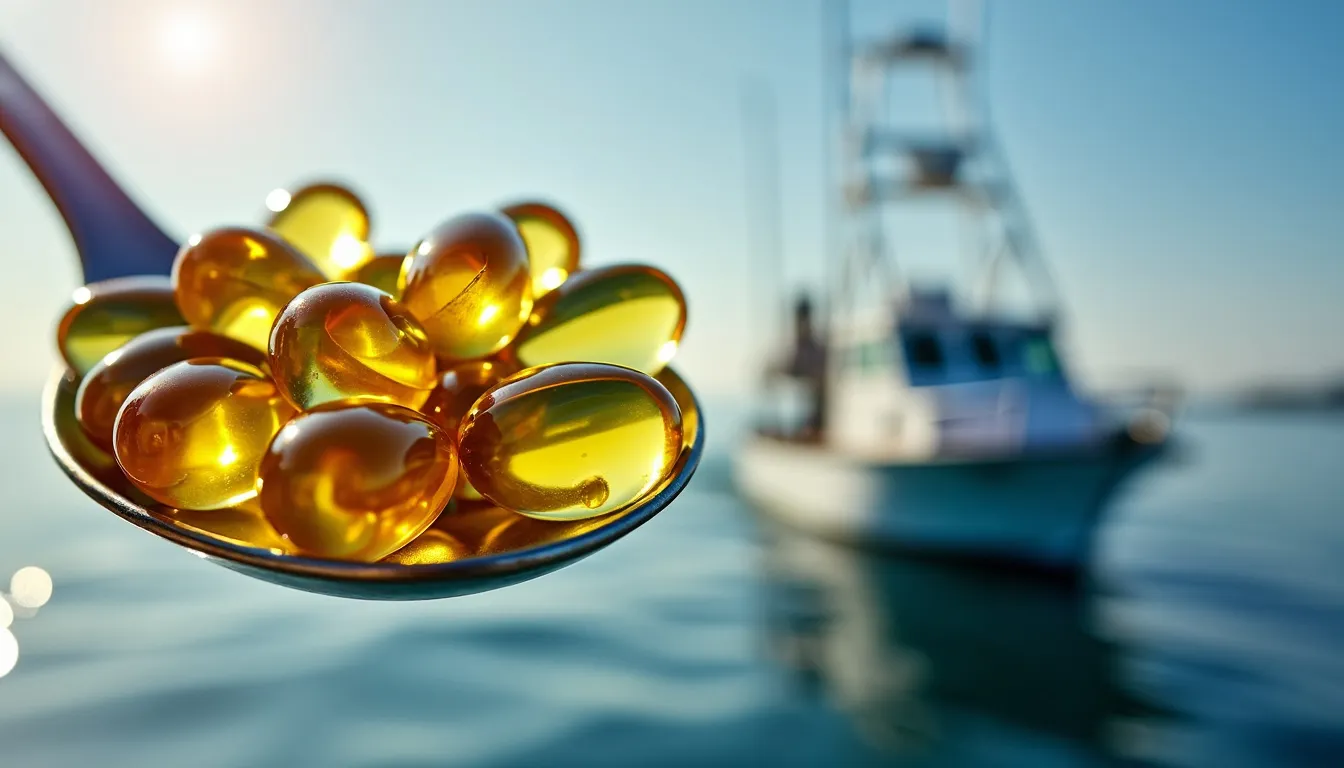Natural ADHD Supplements for Kids: What Every Parent Should Know

As a parent raising a child with ADHD, you've probably spent a lot of time looking for ways to support your child—physically, emotionally, and academically. Managing ADHD can feel like walking a tightrope: balancing the need for focus and calm with the need to maintain your child’s energy and creativity.
While traditional medications work for many kids, there’s also a growing interest in natural ADHD supplements for kids that can help manage symptoms. As someone who has navigated the complexities of ADHD myself, I’ve always been interested in how natural alternatives can play a role in mental health. In this journal, I’ll share insights on some of the most popular natural ADHD supplements for kids and how they might help your child thrive.
Why Consider Natural Supplements for ADHD?

Natural supplements are gaining attention as many parents seek holistic approaches that come with fewer side effects than conventional medications. It’s important to remember that while supplements can be helpful, they’re not a cure-all. Instead, they are often part of a broader approach to managing ADHD, which includes diet, behavioral strategies, emotional support, and possibly traditional treatment.
I’ve personally found that the right blend of natural supplements can provide valuable support in emotional regulation, attention, and focus. These supplements tend to target brain function, balancing neurotransmitters like dopamine and serotonin, which are often linked to ADHD symptoms.
Top Natural ADHD Supplements for Kids
Here are some of the most commonly used natural supplements that parents turn to for ADHD support. Always consult your child’s doctor before starting any supplement regimen to ensure it’s the right choice for them.
1. Omega-3 Fatty Acids (Fish Oil)

Why It’s Important: Omega-3s are essential for brain health, particularly the development of neurons and the regulation of neurotransmitters like dopamine. Children with ADHD are often found to have lower levels of omega-3s, which play a crucial role in cognitive functions like focus and emotional control.
How It Helps: Omega-3s have been shown to reduce hyperactivity and improve attention in children with ADHD. This supplement can come in the form of fish oil or flaxseed oil, and it’s a safe option to try under medical supervision.
Dosage: Fish oil supplements designed for children are widely available, but consult your pediatrician for the correct dosage.
2. Magnesium
Why It’s Important: Magnesium plays an important role in calming the nervous system, supporting muscle relaxation, and regulating sleep. Low magnesium levels have been linked to hyperactivity, irritability, and difficulty focusing—common challenges for kids with ADHD.
How It Helps: Supplementing magnesium can help promote a sense of calm, improve sleep quality, and reduce symptoms of hyperactivity. Learn more about natural vitamins for ADHD that can support overall health.
Dosage: Magnesium is available in powder or pill form, and products designed for children often mix it with calming herbs or other nutrients. Again, be sure to talk to your healthcare provider about appropriate dosage.
3. Zinc
Why It’s Important: Zinc is critical for regulating dopamine, a key neurotransmitter linked to ADHD. Kids with ADHD often have lower levels of zinc, which may contribute to impulsivity and inattention.
How It Helps: Research suggests that zinc supplementation can improve hyperactivity, impulsivity, and social functioning in kids with ADHD, especially when combined with traditional treatments like medication or behavioral therapy. Consider exploring other supplements like Vitamin B6 that also aid in managing symptoms.
Dosage: You can find zinc supplements in child-friendly forms such as gummies or liquids. As always, it’s best to check with a pediatrician before adding zinc to your child’s regimen.
4. Iron
Why It’s Important: Like zinc, iron plays a crucial role in dopamine production. Low iron levels are sometimes found in children with ADHD, and addressing this deficiency may help alleviate symptoms.
How It Helps: Studies suggest that children with low iron levels who are supplemented with iron experience improvements in focus and overall behavior. Be cautious, though—too much iron can be harmful, so it’s important to work with your child’s doctor to monitor levels. For more information, see how a balanced diet supports ADHD management.
Dosage: Iron supplements for kids are widely available, but a blood test is typically needed to confirm a deficiency before supplementing.
5. B Vitamins (Especially B6 and B12)
Why It’s Important: B vitamins are key players in the production of neurotransmitters like serotonin and dopamine. They also help manage stress and anxiety, which are often heightened in kids with ADHD.
How It Helps: Vitamin B6, in particular, has been shown to improve brain function, mood regulation, and behavior in children with ADHD. Vitamin B12 helps support energy levels and cognitive function. Learn more about the benefits of vitamins for managing ADHD symptoms naturally.
Dosage: B-complex vitamins that are formulated for children are a good way to ensure your child is getting the full range of B vitamins. Check with a healthcare provider to determine the best form and dosage.
6. L-Theanine

Why It’s Important: L-theanine is an amino acid found in green tea that promotes relaxation without causing drowsiness. It helps the brain produce calming neurotransmitters like GABA and serotonin, which can reduce stress and improve focus.
How It Helps: L-theanine is particularly useful for children with ADHD who struggle with anxiety or have trouble winding down. It’s often used as a natural alternative for promoting calmness in kids who are prone to restlessness or hyperactivity. Additionally, engaging in emotional regulation games can further support calming strategies.
Dosage: L-theanine supplements are available in chewable tablets or powders designed for children. Discuss the appropriate use with a doctor before starting.
7. Ginkgo Biloba
Why It’s Important: Ginkgo biloba is a natural supplement known for its ability to improve memory and attention by boosting blood flow to the brain. Some studies suggest it can be effective for children with ADHD in improving focus and reducing impulsive behaviors.
How It Helps: Ginkgo biloba may enhance mental clarity, concentration, and overall cognitive performance in kids with ADHD. Other approaches, like boosting ADHD management through physical activity, can also improve cognitive performance.
Dosage: This supplement is generally well-tolerated in children but should be used under the guidance of a healthcare professional, especially if your child is on other medications.
Final Thoughts: It’s All About Balance
When it comes to ADHD management, there’s no one-size-fits-all solution. Each child’s needs are unique, and it’s important to approach natural ADHD supplements for kids as just one part of a larger strategy. Dietary changes, behavioral support, emotional regulation techniques (like our Qiks), and consistent routines all play a role in helping kids with ADHD succeed.
Before starting any new supplement, I can’t emphasize enough the importance of consulting with your child’s healthcare provider. What works for one child may not work for another, and it’s essential to find a personalized approach that works for your family.
Natural ADHD supplements for kids can be a valuable tool in the ADHD toolkit, but they should be combined with other lifestyle strategies to see the best results. Ultimately, the goal is to help your child feel balanced, supported, and empowered to navigate their ADHD with confidence. Learn more about the tools available on the Bonding Health App to support your child’s ADHD management.
If you're looking to explore safe, effective ways to support your child's ADHD naturally, consider trying our Bonding Health App or explore more resources on our website.


